4, December 2018
Modric beats Ronaldo, Messi to win Ballon d’Or 0
Luka Modric ended the long reign of Lionel Messi and Cristiano Ronaldo by winning the Ballon d’Or for the first time on Monday, while another first saw Norwegian forward Ada Hegerberg win the inaugural women’s trophy.
Messi and Ronaldo had won every Ballon d’Or since 2008, and usually fought only each other for the greatest recognition among soccer’s elite. Women’s fight for recognition on the biggest stage took a big step with Hegerberg’s award.
Modric won the Champions League with Real Madrid and then guided Croatia to the World Cup final in July. The midfielder was voted player of the tournament. “As a kid we all have dreams. My dream was to play for a big club and win important trophies,” Modric said. “The Ballon d’Or was more than just a dream for me and it is really an honor and a privilege to hold this trophy.”
Ronaldo was second in the polling followed by France forward Antoine Griezmann. France’s teen star, Kylian Mbappe, was fourth. Brazil star Neymar was third last year but only 12th this time. Messi was fifth in the voting, having been runner-up to Ronaldo the past two years and in the top three every year since 2007. Modric had never previously been in the top three.
“2018 is a dream year for me,” the 33-year-old Modric said. “Throughout my career I realized hard work, persistence and belief in yourself in difficult moments are the foundations of success.” Modric’s father was shown on the big screen wiping away tears during the ceremony at the imperious Grand Palais in Paris.
Ronaldo missed out on a record sixth award, which would have moved him one ahead of Messi. The last player to win it before those two started dominating world soccer awards was Brazil midfielder Kaka with AC Milan in 2007.
Ronaldo also won the Champions League last season with Modric, before leaving to join Juventus. He scored a hat trick against Spain at the World Cup but he failed to make an impression when Portugal lost to Uruguay in the round of 16.
Mbappe and Griezmann scored in the 4-2 World Cup final win against Croatia. Mbappe earned a domestic treble with Paris Saint-Germain. Griezmann also scored twice for Atletico Madrid in the Europa League final win against Marseille.
France coach Didier Deschamps said a France player should have won the award. “They deserve it because of what they did with the national team at the World Cup and also because of the trophies they won with their clubs,” Deschamps said.
The 19-year-old Mbappe the youngest player since Pelé to score in a World Cup final won the Raymond Kopa Trophy awarded to the best young player. France Football magazine has been awarding the Ballon d’Or since 1956, and created a women’s award for the first time this year.
Hegerberg is a three-time Women’s Champions League winner with French side Lyon and scored a tournament-record 15 times last season. “I want to say thanks to France Football. It’s a huge step for women’s football,” Hegerberg said. “I want to end this speech with a message to all young girls in the world. Believe in yourselves.”
The outspoken 23-year-old Hegerberg said she won’t play for Norway at the Women’s World Cup in France next June. Taking a stand against what she describes as a lack of respect for female players in Norway, she hasn’t played for the national team since 2017 when it crashed out of the group stage of the Women’s European Championship without scoring a goal.
Speaking in an interview shortly before collecting her Ballon d’Or, Hegerberg told The Associated Press on Monday she has no plans to reconsider her decision taken to preserve her “authenticity and my values, as a person, as a footballer.”
“A lot of things need to be done to make the conditions better for women who play football,” she said. “It’s all about how we respect women’s football. I don’t think the respect has been there. “Sometimes you have to take tough decisions to stay true to yourself. I let them know, quite clearly, what I found wasn’t working.”
(AP)
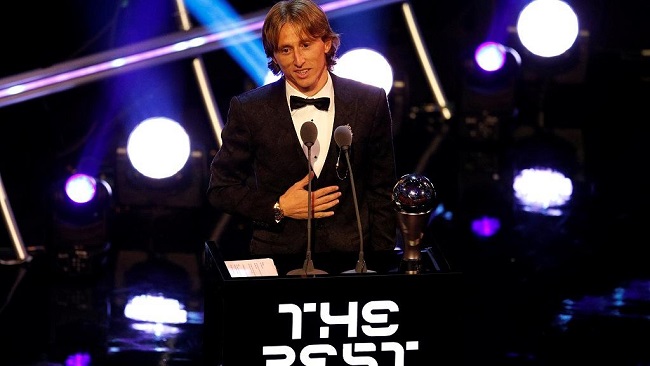


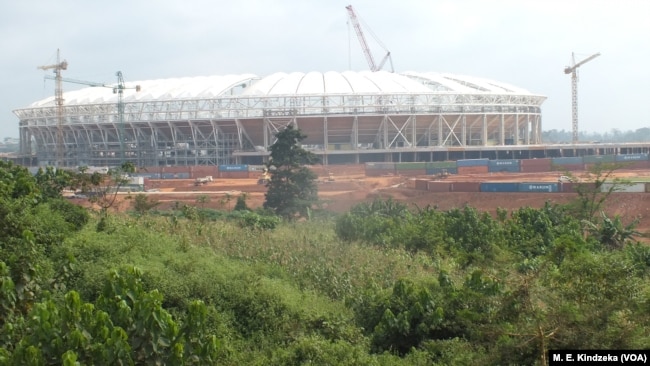


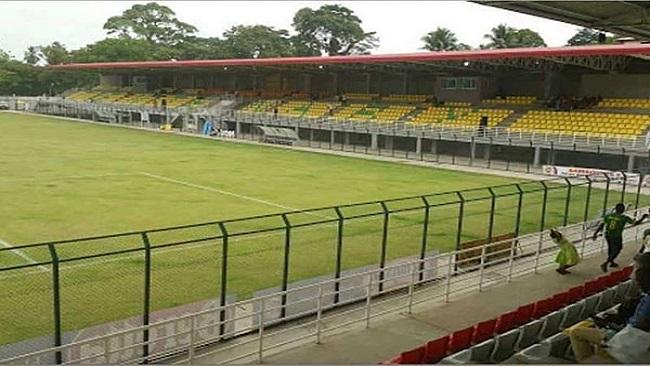
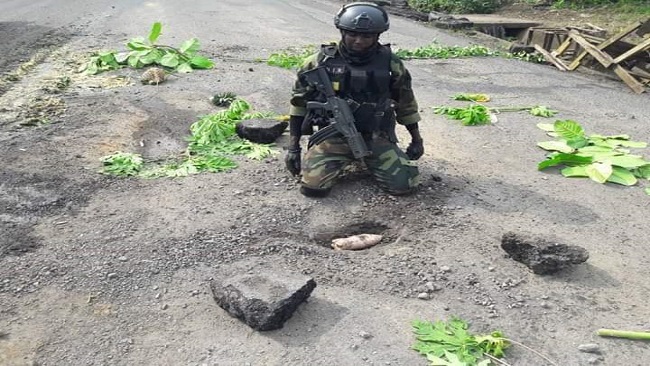
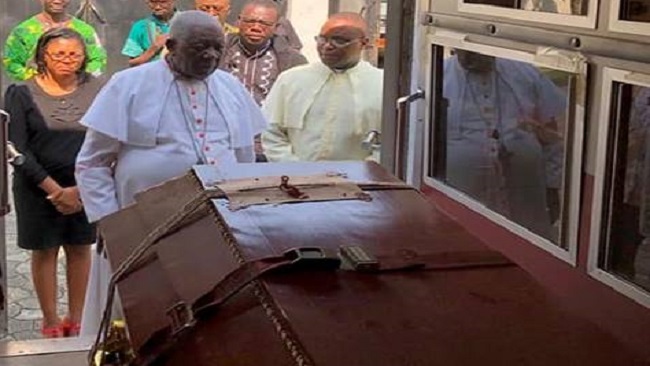
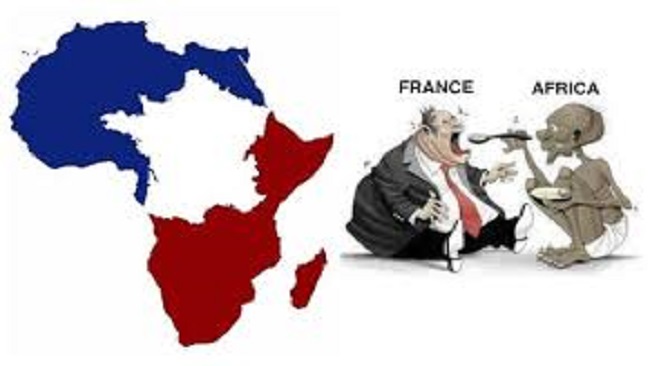












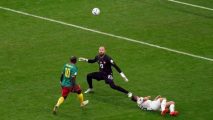




4, December 2018
Cameroonians die three times over: They die of poverty, die of illness and die of war 0
La Republique du Cameroun until the recent secession of its Anglophone part was CEMAC region’s biggest country. It is mostly known and in particular portrayed as such in the world media, for its peace, football and ethnic, religious and tribal tolerance. But the Southern Cameroons revolution has made all of the positives a thing of the past fostered by a sitting ruthless dictator, old colonialist power and new imperialist forces. This is exactly what is happening today in La Republique du Cameroun since the beginning of the Ambazonia uprising.
From its very inception, Anglophone lawyers and teachers rose up en masse and challenged the Francophone dominated regime in Yaoundé over what they described as endemic marginalization and economic discrimination. The revolt was directed against the heinous Francophone dictatorship of President Paul Biya and the ruling Cameroon Peoples Democratic Movement party that has held power since November 6th 1982. This is the first revolt of this magnitude against a French surrogate regime.
Ghost town operations of a scale not witnessed for decades has continued for two years now in all major Southern Cameroons cities, towns and villages. Anti-government protests, initially led by students from the University of Buea and Bamenda, have inspired similar demonstrations among traders union, okada riders and transporters. In French Cameroun, years of subjugation at the hands of the ruling Cameroon Peoples Democratic Movement (CPDM) has yielded both political apathy and a weak opposition.
The killing of several hundred of Southern Cameroonians and sweeping arrests on the part of the French Cameroun State Security and Intelligence Services reportedly pushed the protests to expand to include all the people of the former British Southern Cameroons. The regime started to take it very seriously following the escalation of repression and this also is an indication of the loss of social control by President Biya. Buea, Bamenda and all the major cities in Southern Cameroons are now besieged by the Francophone police and the French Cameroun army. Bullets and teargas were the first reaction, and then the Biya regime started to crackdown massively on Ambazonians, arresting more than 1000 activists. 4000 Southern Cameroonians have so far been killed. Hundreds have been carried to “phantom houses” or undisclosed locations, where they are tortured and the women and young girls raped by members of the infamous French Cameroun secret service. Approximately 50,000 have fled the onslaught into neighbouring Nigeria and thousands are living in the bushes. The UN says some 461,000 Southern Cameroonians have been internally displaced.
On October 7, the president-dictator, Paul Biya rigged the presidential election in French Cameroun and got a seventh term and is now imposing a new round of even more draconian measures against the people of Southern Cameroons which have subsequently created a club of military billionaires as 85% of the government’s budget is swallowed by military expenses. Meanwhile the ongoing wars in the Far North region against Boko Haram and in the East with rebels from the Central African Republic cost the French Cameroun government millions a day!
Things are beginning to fall apart as Cameroon was recently stripped of the right to stage the 2019 African Nations Cup finals. CAF confirmed the unanimous decision after a meeting of its executive committee in Accra. Cameroon’s ability to host the finals was first questioned when CAF announced in July last year that the tournament would have eight additional teams and only countries capable of putting on world-class tournament, with complete facilities and extensive infrastructure would be allowed to stage the event. CAF sent several inspection teams to Cameroon to check on the progress of the construction of five stadiums proposed for the tournament.
When CAF president Ahmad went to Cameroon in October he told the country’s President Paul Biya in front of assembled reporters: “CAF has no Plan B, nor have we ever considered taking the Nations Cup away from Cameroon.” But last week he criticised Cameroon’s inability to regularise the affairs of its football federation, which has been under the control of a normalisation committee for more than a year while it struggles to adopt a new constitution and elect a new executive.
On 30 November 2018, President Paul Biya signed a decree creating the “National Disarmament, Demobilization and Reintegration Committee (NDDRC) for organizing, supervising and managing the disarmament, demobilization and reintegration of ex-fighters of Boko Haram and armed groups in Southern Cameroons willing to respond favourably to the Head of State’s peace appeal by laying down their arms.” In response, Ambazonia Self-Defence and Restoration Forces Council (ASC/RF), the command and control system prosecuting the war against French Cameroun rejected the so-called Biya presidential decree. The situation in both Cameroons is growing from bad to worse and even Francophone Cameroonians are fed up. The President-dictator lives in a five star Intercontinental Hotel in Geneva and his regime is slowly but surely taking the last kicks of a dying horse. To be accurate Cameroonians die three times over: they die of poverty, die of illness and die of war.
By Soter Tarh Agbaw-Ebai